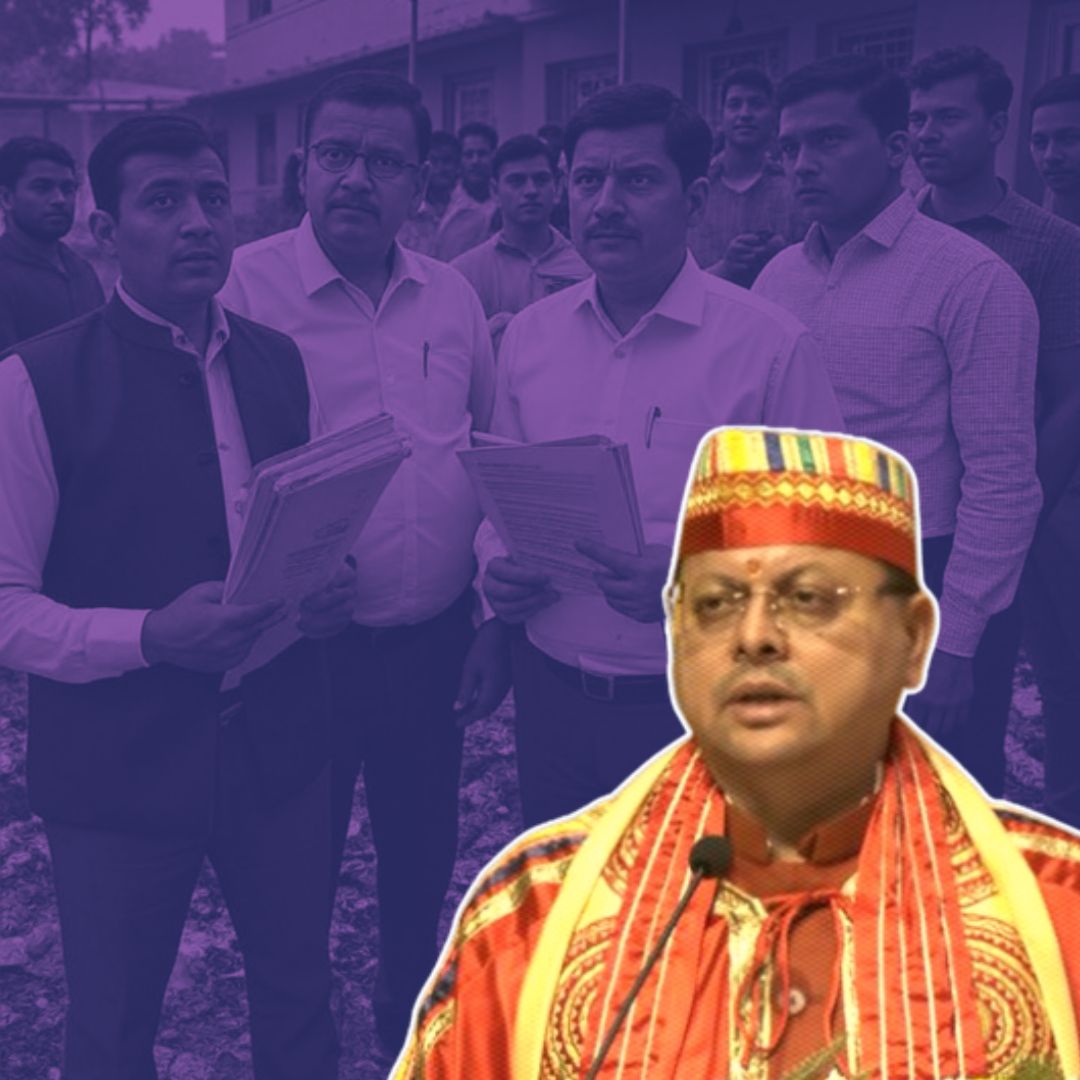In a landmark administrative crackdown, the Uttarakhand government has suspended 12 officials—including Haridwar District Magistrate Karmendra Singh, former Municipal Commissioner Varun Chaudhary, and Sub-Divisional Magistrate Ajayveer Singh—for their alleged involvement in a ₹54 crore land scam in Haridwar.
The suspensions came after IAS officer Sachin Ranveer led a comprehensive 100-page probe that uncovered serious irregularities in the purchase of a 2.3-hectare land parcel, which was bought at nearly four times its market value.
The land, located next to a garbage dump, was converted from agricultural to commercial use in an unusually short period, raising red flags. Chief Minister Pushkar Singh Dhami has ordered a Vigilance Department investigation, cancelled the controversial land deal, and called for a special audit of all municipal transactions during the implicated period. The government’s swift action reflects its zero-tolerance stance on corruption and commitment to restoring public trust.
Administrative Overhaul: Suspension of Senior Officers
The suspension of 12 officials marks one of the most significant administrative shake-ups in Uttarakhand’s recent history. Among those suspended are two senior IAS officers, including Haridwar’s District Magistrate Karmendra Singh, and one PCS officer, Sub-Divisional Magistrate Ajayveer Singh.
The probe revealed that the Haridwar Municipal Corporation purchased the 2.3-hectare land parcel—adjacent to a garbage dump and considered “unsuitable and practically useless”—for ₹54 crore, despite its estimated market value being between ₹14 and ₹15 crore. This inflated price was allegedly justified by a rapid change in land use status from agricultural to commercial within two to three days, bypassing standard procedures.
Chief Minister Dhami emphasised, “Corruption will not be tolerated at any level. We are committed to ensuring transparency and accountability in governance.” The government also cancelled the extensions of service for two officers implicated in the scam and has initiated departmental inquiries to examine the extent of wrongdoing.
Unveiling the Scam: Investigation and Systemic Lapses
The detailed investigation led by IAS officer Sachin Ranveer exposed multiple violations of government protocols. The Land Pooling Committee, which plays a crucial role in land acquisition and development, was bypassed entirely. Additionally, Section 143 of the Uttarakhand Revenue Code, which governs land use conversions, was allegedly misused to expedite the commercial status of the land without proper justification.
The probe highlighted that there was no immediate requirement for the land, raising questions about the rationale behind the purchase. The report also pointed to a lack of transparency and accountability throughout the transaction process.
Following the exposure of the scam, the government has handed over the case to the Vigilance Department for a thorough inquiry. A special audit of all municipal works and land deals during the period has also been ordered to prevent recurrence of such malpractices.
The Logical Indian’s Perspective
The Uttarakhand government’s decisive action against corruption within its ranks is commendable and necessary to rebuild citizens’ faith in public institutions. By holding senior officials accountable, the administration sends a clear message that unethical behaviour will not be tolerated, regardless of position or influence.
However, while suspensions and investigations are important first steps, lasting change requires systemic reforms that promote transparency, strengthen oversight mechanisms, and foster a culture of integrity. Public participation and vigilant civil society also play a vital role in ensuring accountability.
As we applaud this move towards cleaner governance, we invite our readers to reflect: What additional measures can be implemented to strengthen transparency and prevent corruption in public service? How can citizens actively contribute to building an accountable administration?













